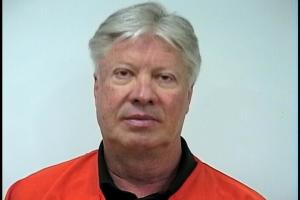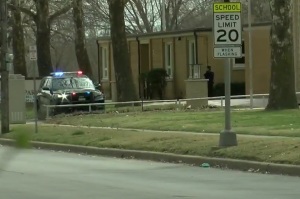Who is more humble? The one who apologizes or the one who forgives?
The act of forgiveness is something that we must continually practice, but it does not come easily. Forgiveness is complex, and it involves the act of humbling one’s self, as well as extending grace to others.

When I think about the concept of humility coexisting with forgiveness, the person apologizing is usually the one who is humbled. However, I have come to see this in a different light. It is actually a humbling experience – and often a very difficult one – to be the person who is required to forgive.
Forgiving someone who has wronged us means that we have to admit that something they did bothered us. It requires us to be honest about the fact that we have the potential to be hurt by someone, which inherently implies that people have power over our feelings.
Jesus asks us to “turn the other cheek,” and when we are in the process of being verbally hit by someone, this can seem like the most difficult thing to do. But when the fight is over, it can be easy to become self-righteous, and even feel like we are better than the other person because we backed down. Anyone who has been in a feud knows this is rarely the end of the encounter. Rather, the true test comes afterwards when Jesus asks us to forgive them for hurting us, even if they didn’t ask us to.
As Christians, we should be all too familiar with the act of forgiveness because we are offered it every day by the One who laid down His life for us. But it can often be much easier to accept forgiveness than to give it. Sometimes, there may be good reasons for why we should create boundaries with certain people, but we should also check our hearts when we do so to make sure that we aren’t holding onto grudges against them in a way that will perpetuate a cycle of pain.
We have the greatest opportunity to be face-to-face with forgiveness every day, because each day we do something wrong that requires us to go to God and confess. This isn’t so that we end up in a cycle of shame or guilt. Rather, we confess to our Creator so that we can maintain a close and intimate relationship with Him. It’s the same with people. When we forgive others, we are able to figure out the truth about why we were hurt by an action of theirs – and we are able to have a closer relationship because of it.
C.S. Lewis said it best in a letter to his lifelong friend, Arthur Greeves: “‘To be a Christian means to forgive the inexcusable because God has forgiven the inexcusable in you.’”[1] When we forgive others, we are able to draw closer to God and have a deeper appreciation for His capacity and willingness to forgive us.
[1] Letter to Arthur Greeves, 31 Aug 1918, Letters vol 1, 394.
Charlotte Pence Bond is the New York Times best-selling author of Marlon Bundo’s A Day in the Life of the Vice President along with two other books in the series. Her first solo book, Where You Go: Life Lessons from My Father (Center Street) was released in October 2018 and reveals lessons her father, Vice President Mike Pence, has taught her. She is a current contributor to Lightworkers.com and her work has been published in The Washington Times, Glamour magazine and featured in US Weekly, among other major media outlets. A graduate of DePaul University with a BA in Digital Cinema Screenwriting and English, Charlotte contributed writing and production skills to the Emmy Award-winning documentary Fleeced (WFYI Productions). Charlotte currently attends Harvard Divinity School where she is a candidate for a Masters in Theological Studies, with an emphasis on religious themes in literature and culture.





























